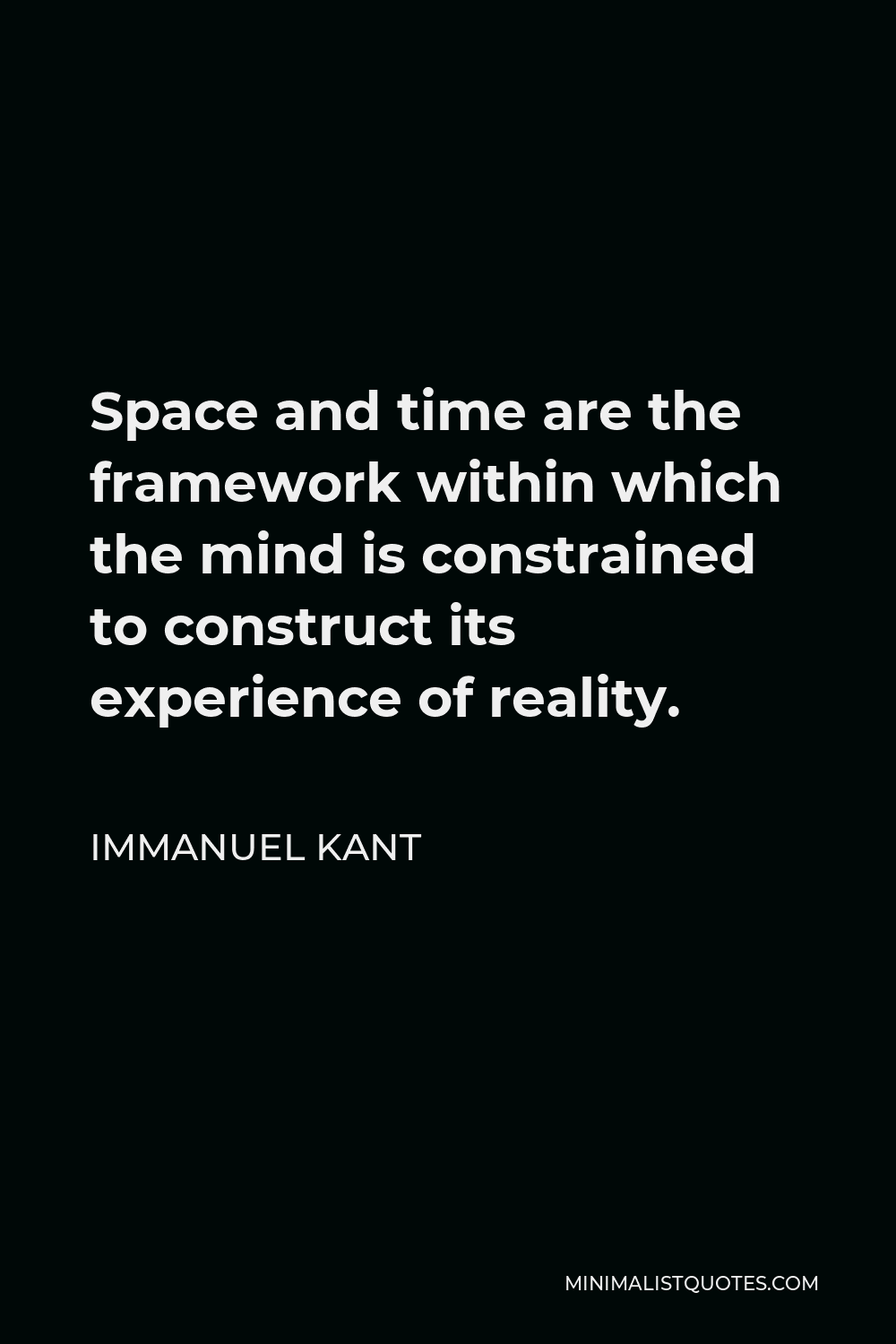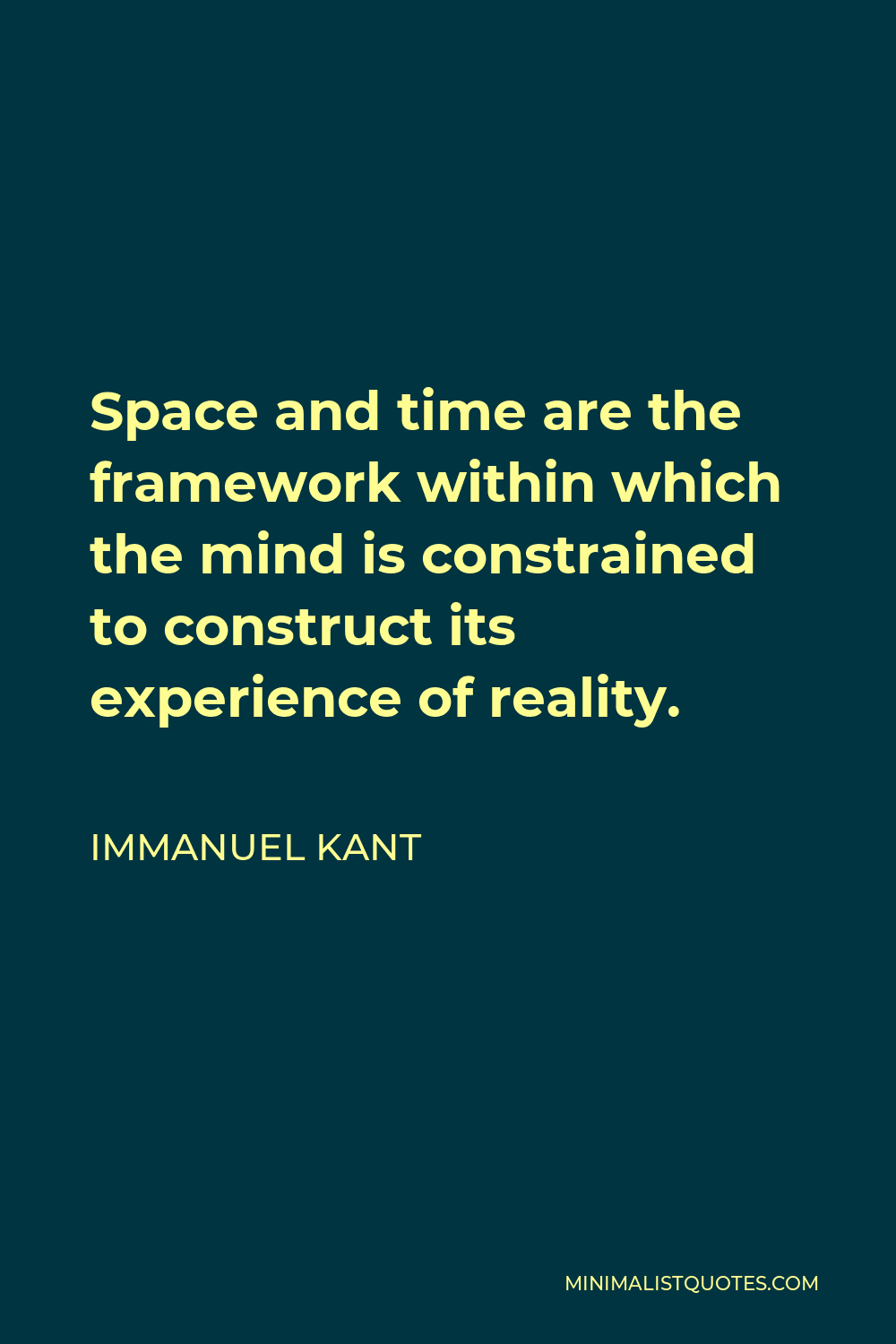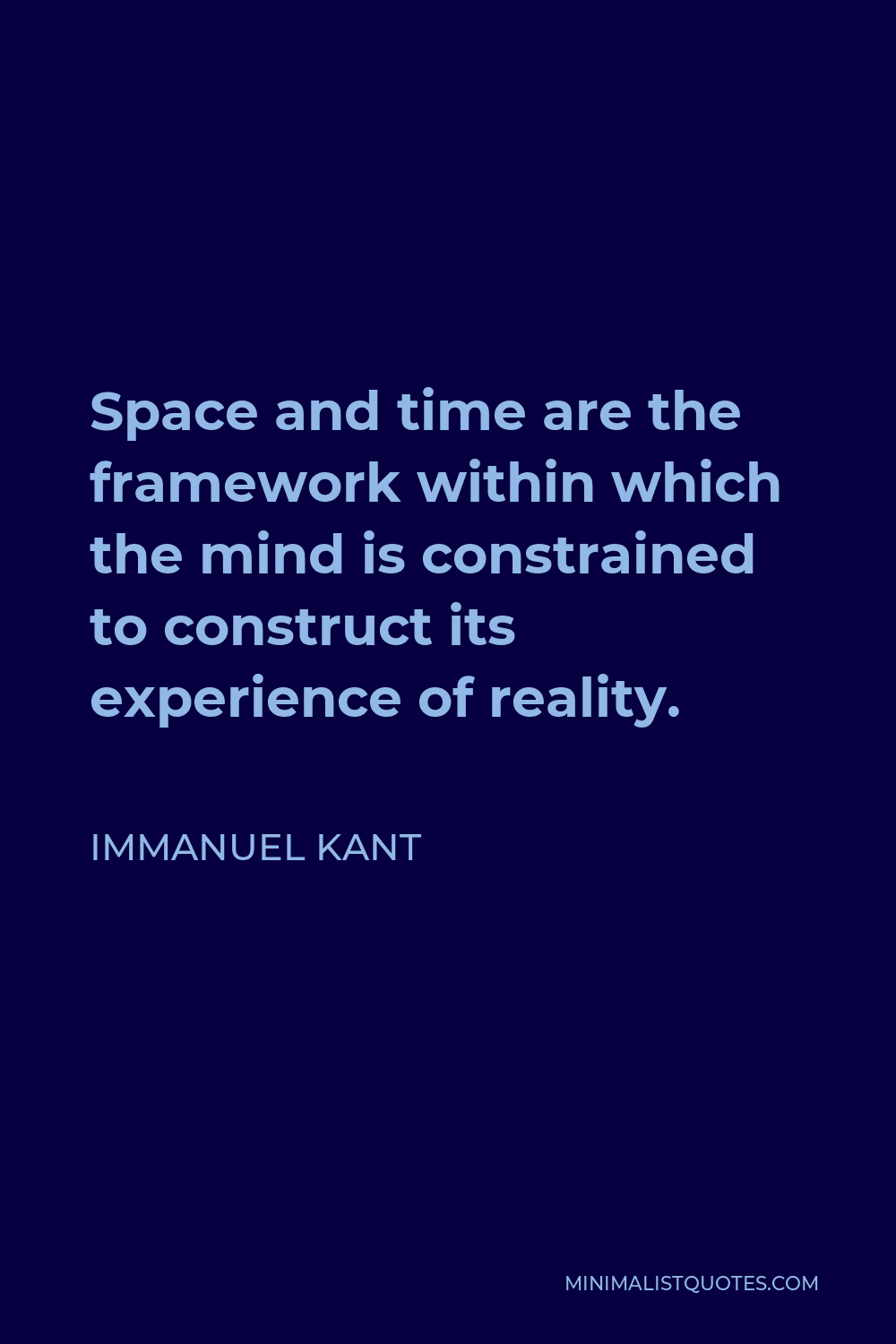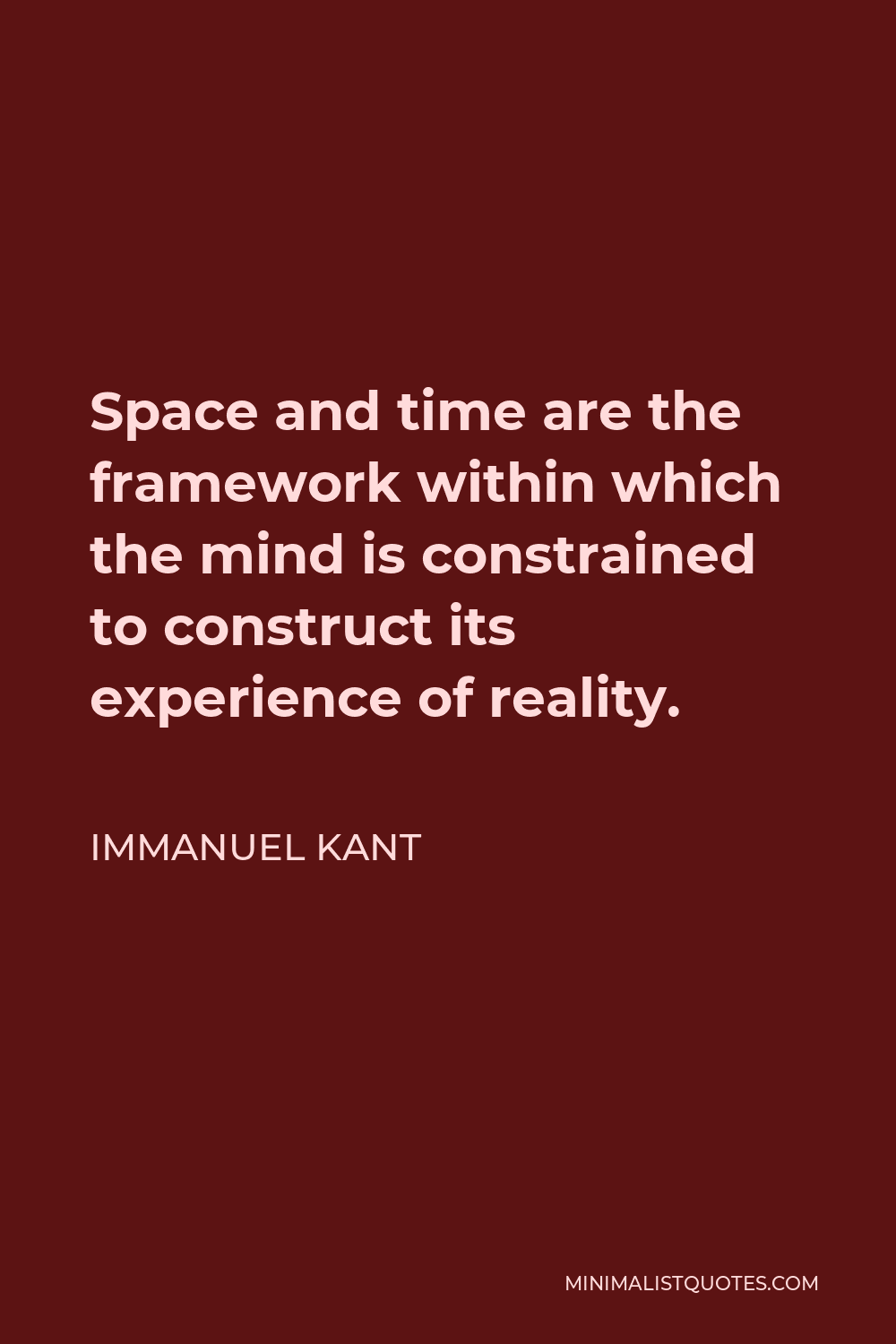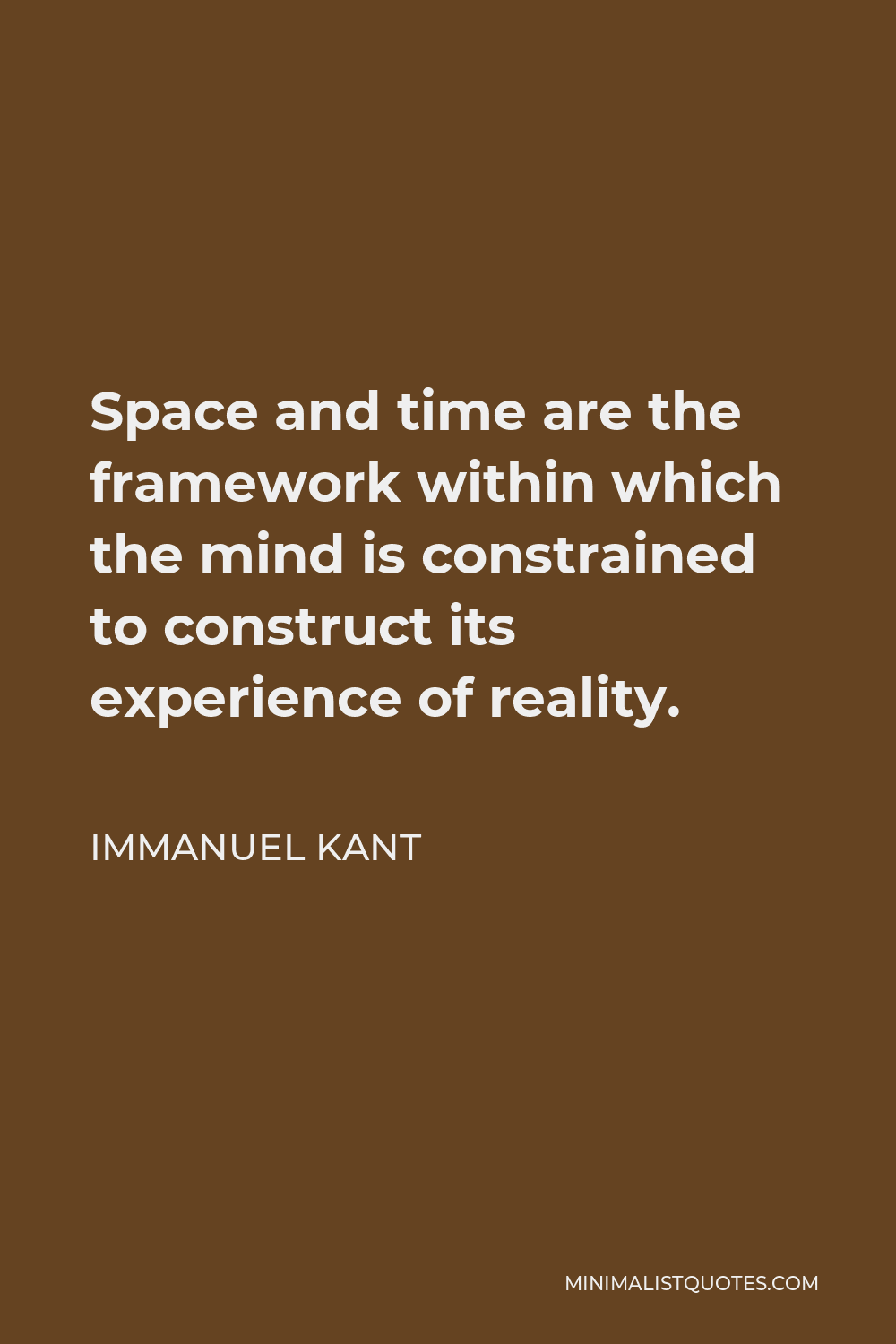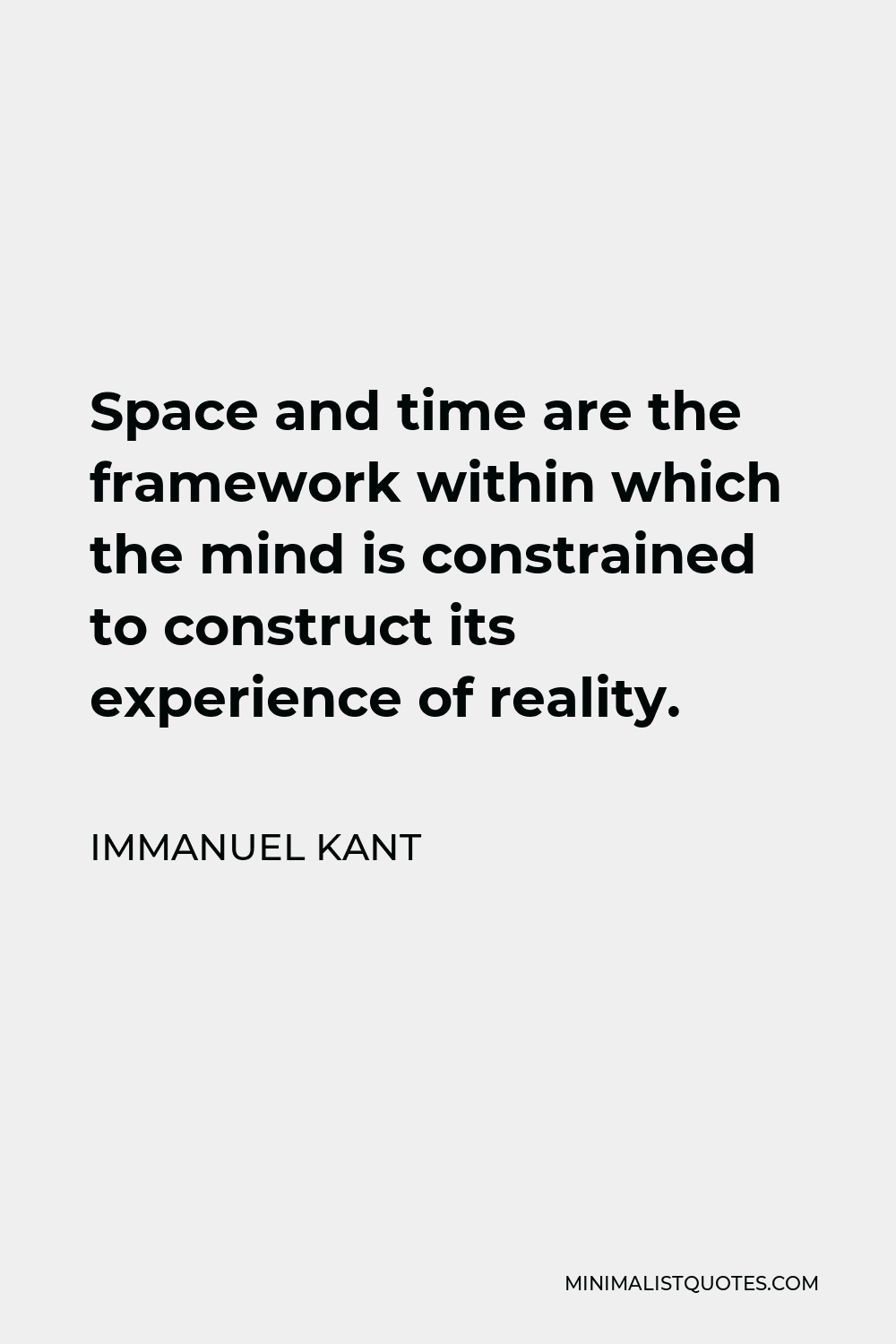He who would know the world must first manufacture it.
IMMANUEL KANTSpace and time are the framework within which the mind is constrained to construct its experience of reality.
More Immanuel Kant Quotes
-





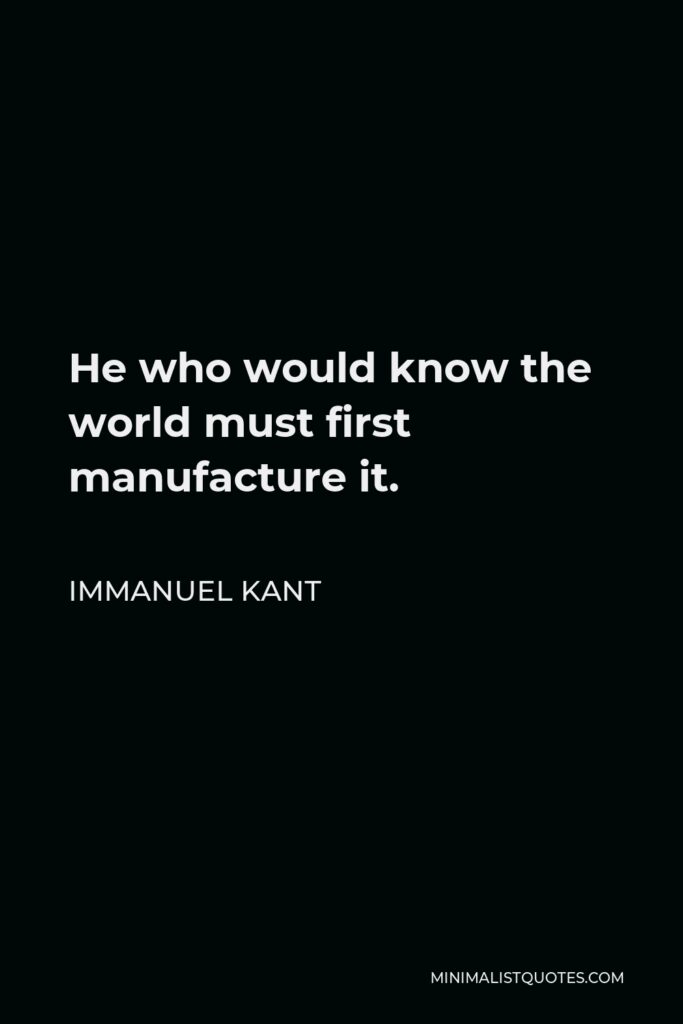

-





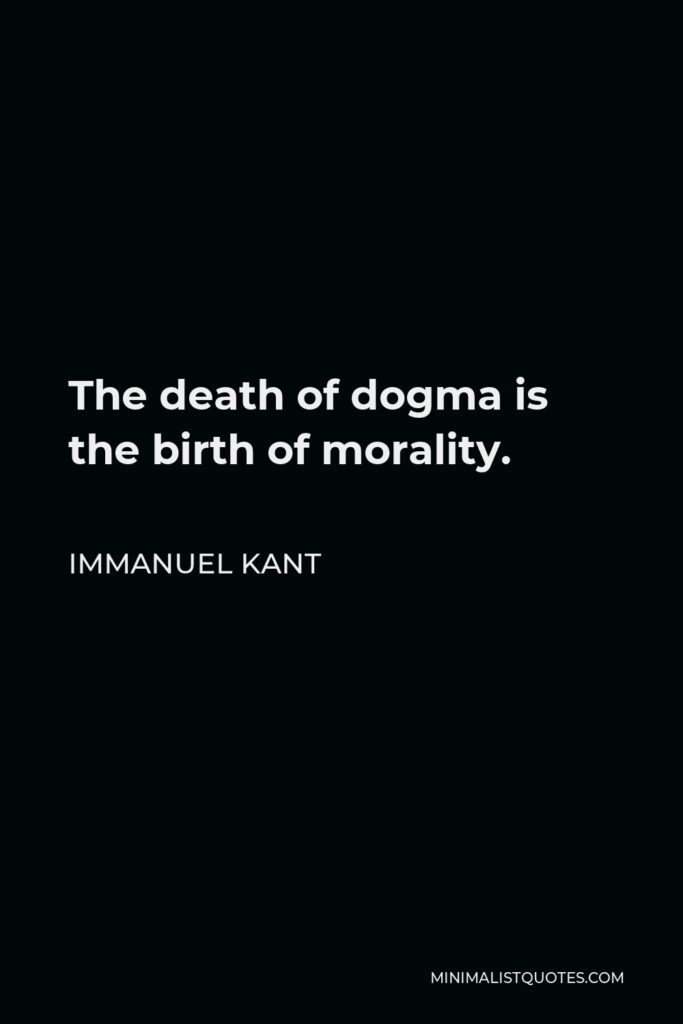

The death of dogma is the birth of morality.
IMMANUEL KANT -





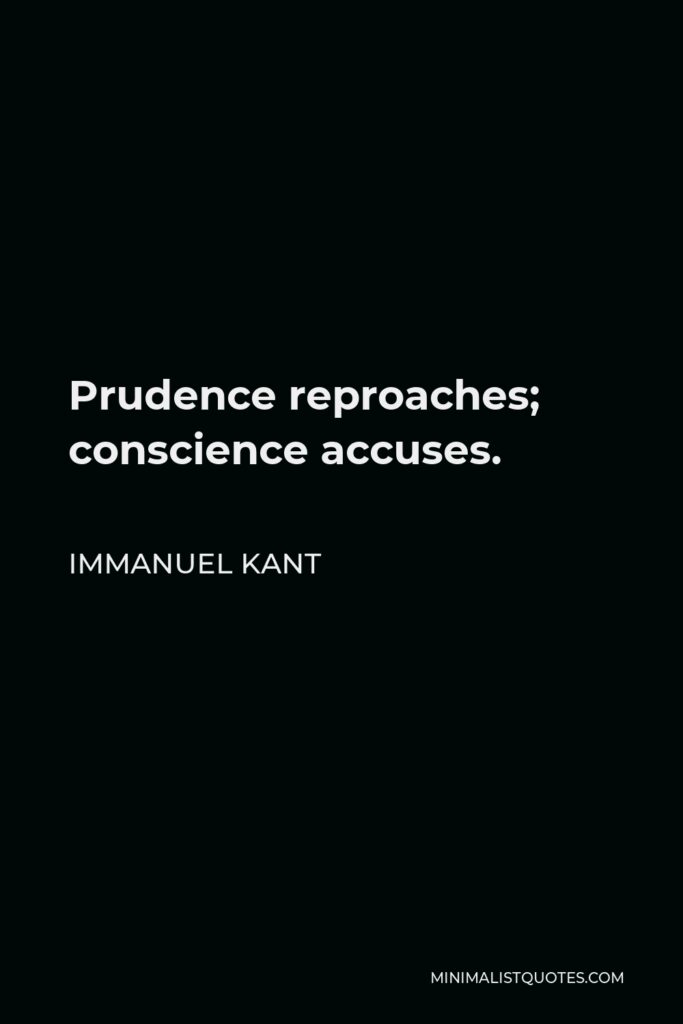

Prudence reproaches; conscience accuses.
IMMANUEL KANT -





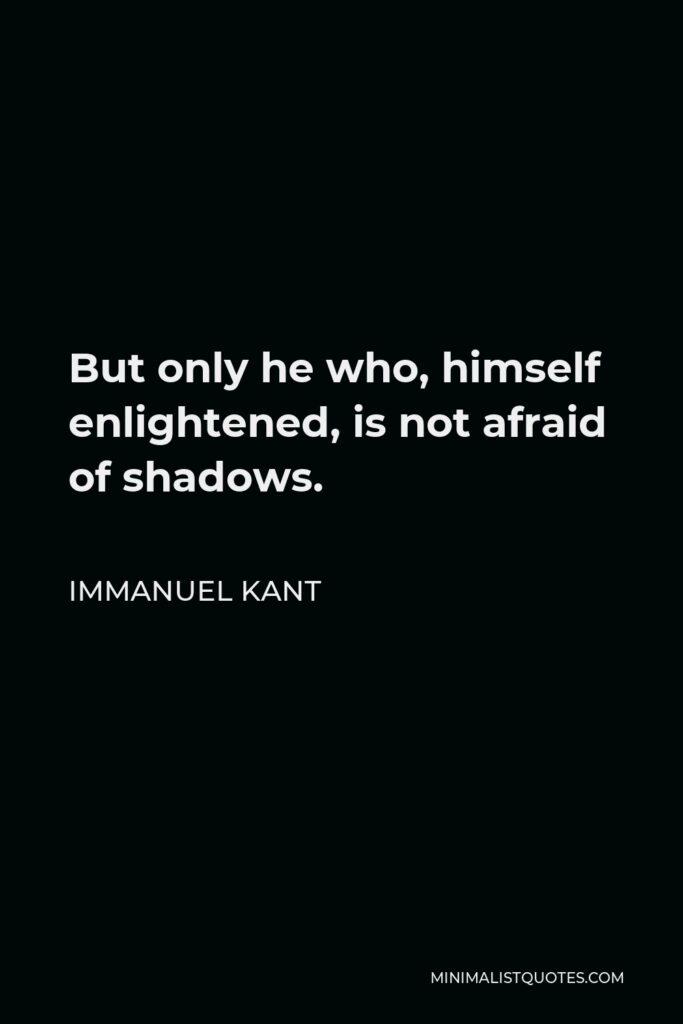

But only he who, himself enlightened, is not afraid of shadows.
IMMANUEL KANT -





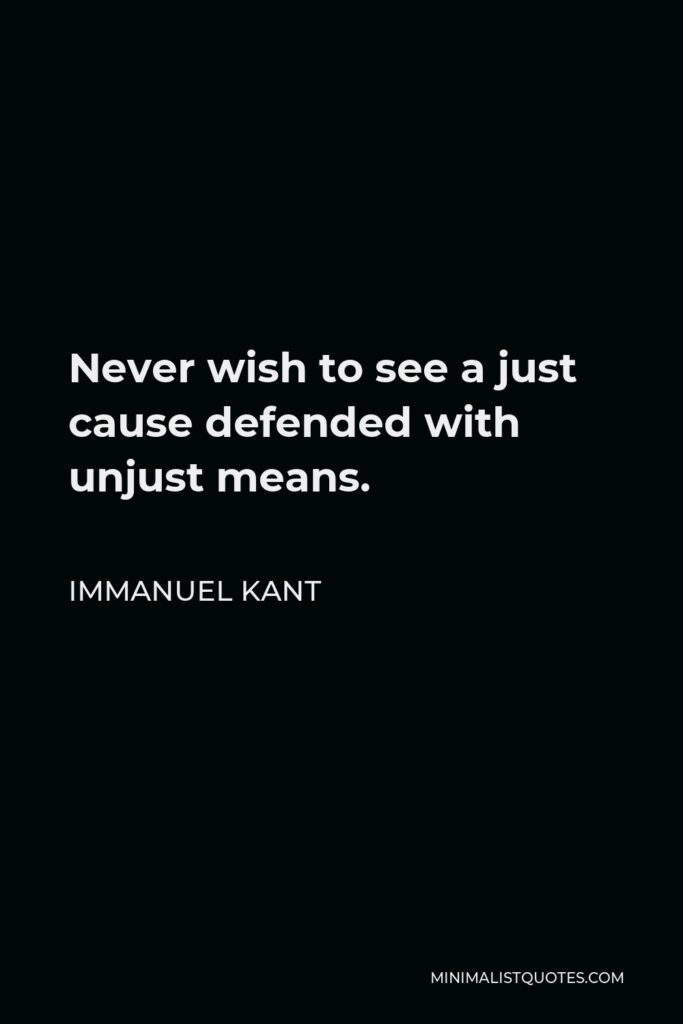

Never wish to see a just cause defended with unjust means.
IMMANUEL KANT -





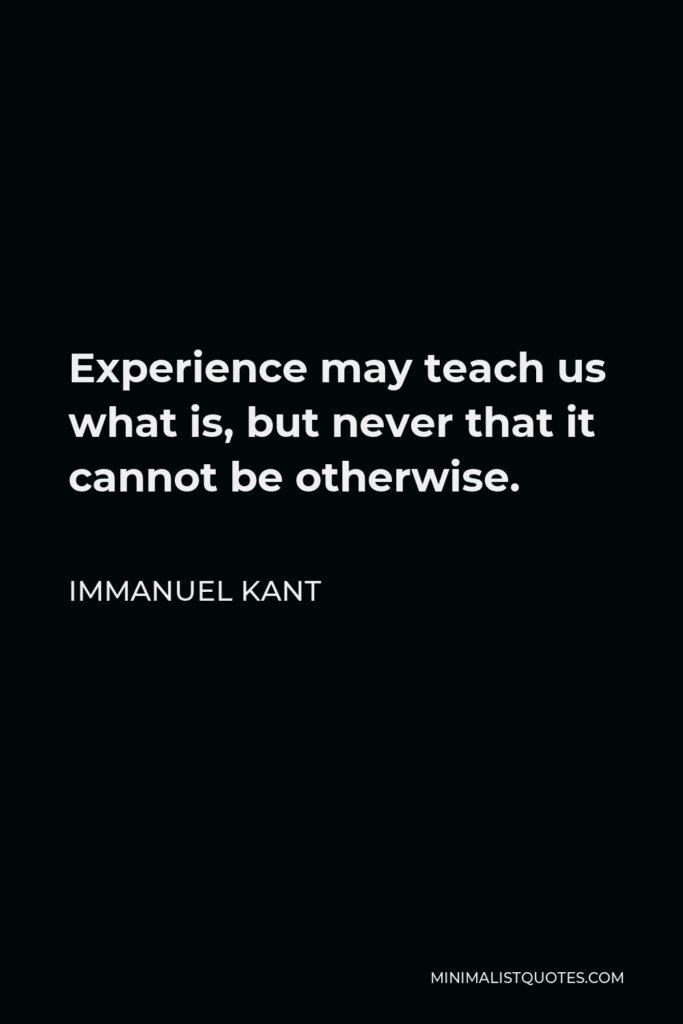

Experience may teach us what is, but never that it cannot be otherwise.
IMMANUEL KANT -





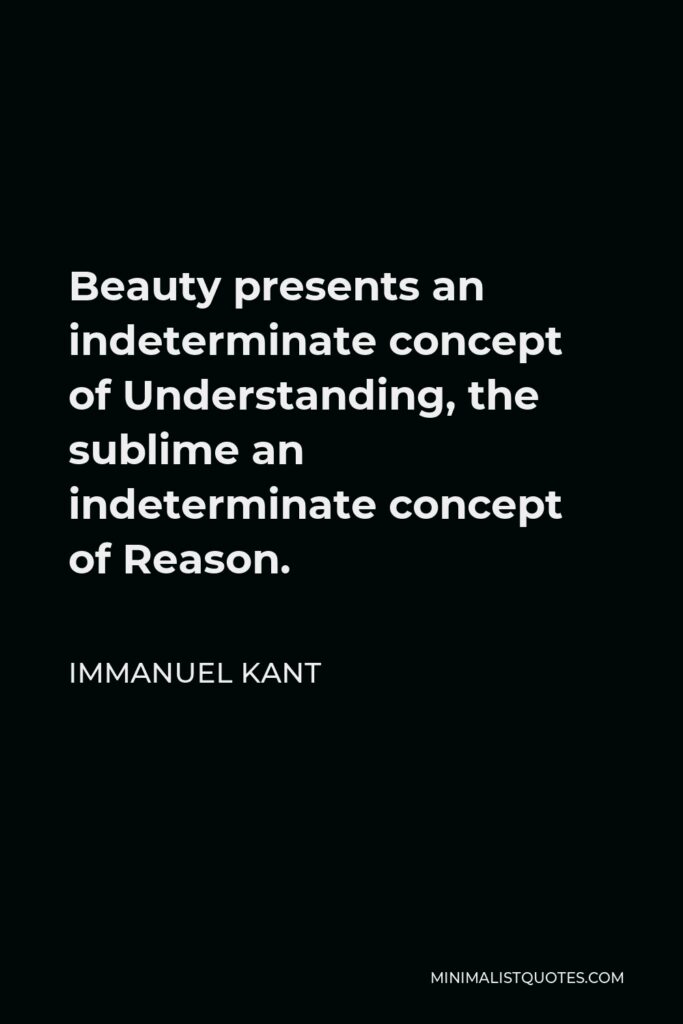

Beauty presents an indeterminate concept of Understanding, the sublime an indeterminate concept of Reason.
IMMANUEL KANT -





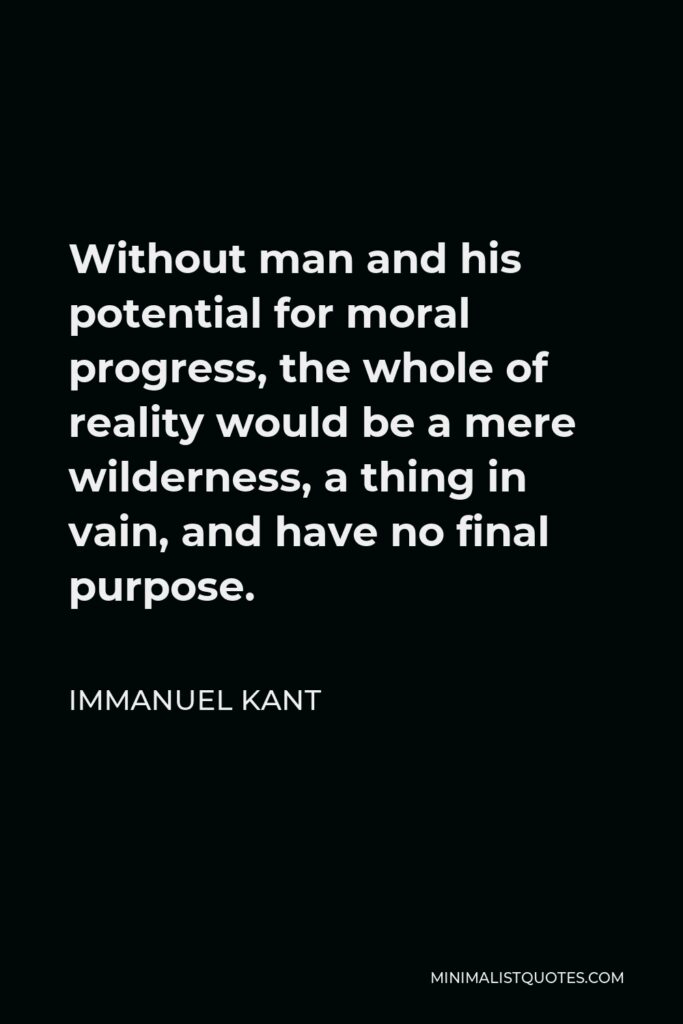

Without man and his potential for moral progress, the whole of reality would be a mere wilderness, a thing in vain, and have no final purpose.
IMMANUEL KANT -





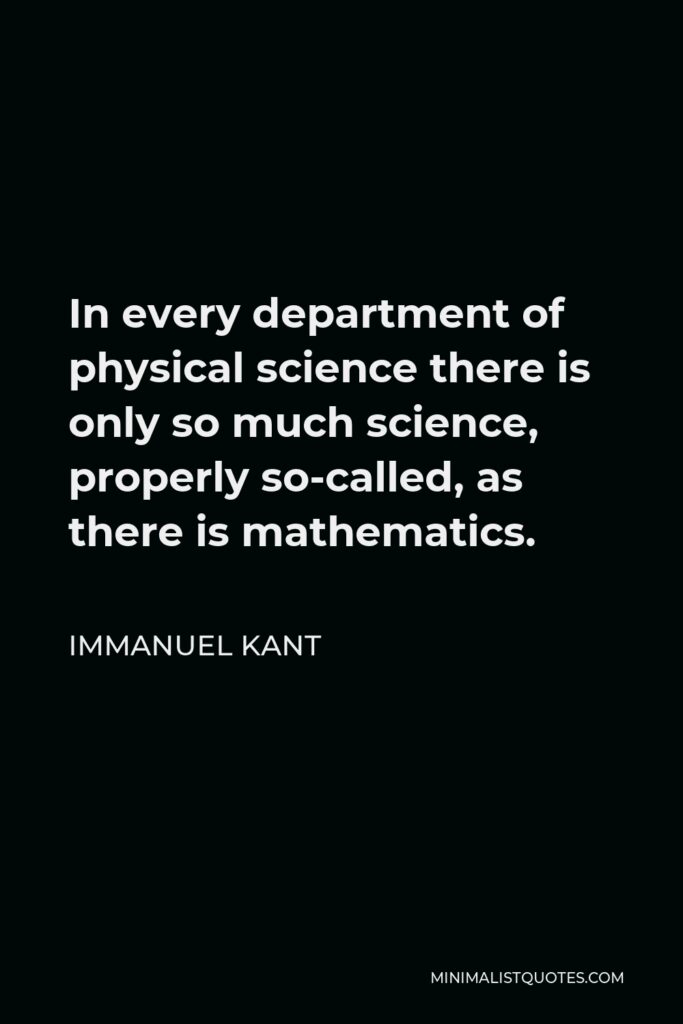

In every department of physical science there is only so much science, properly so-called, as there is mathematics.
IMMANUEL KANT -





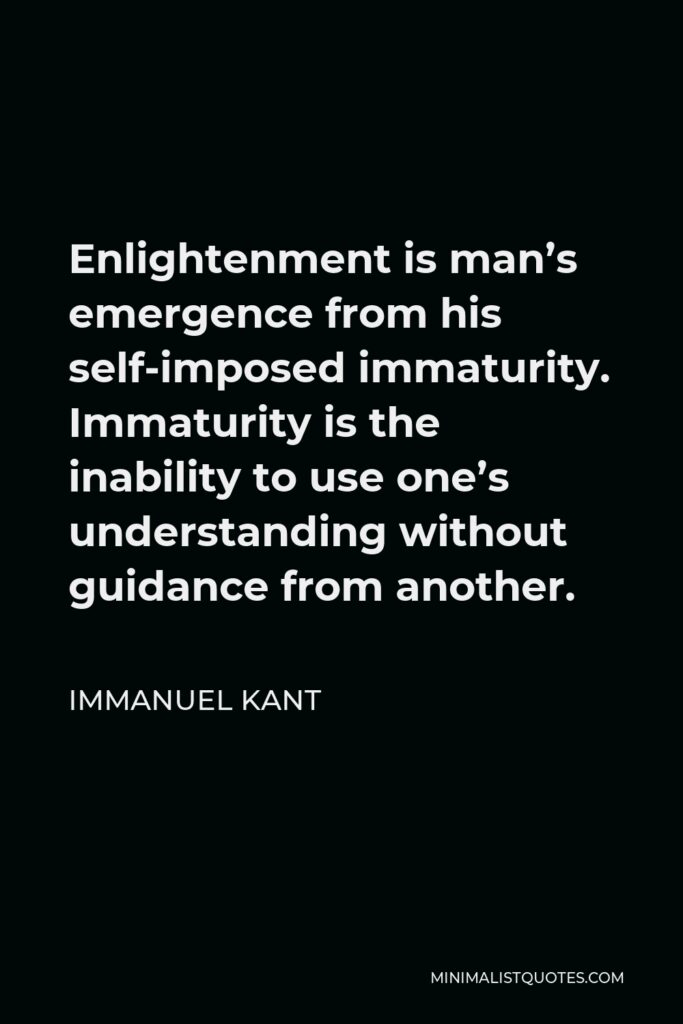

Enlightenment is man’s emergence from his self-imposed immaturity. Immaturity is the inability to use one’s understanding without guidance from another.
IMMANUEL KANT -







The history of nature, begins with good, for it is God’s work; the history of freedom begins with badness, for it is man’s work.
IMMANUEL KANT -





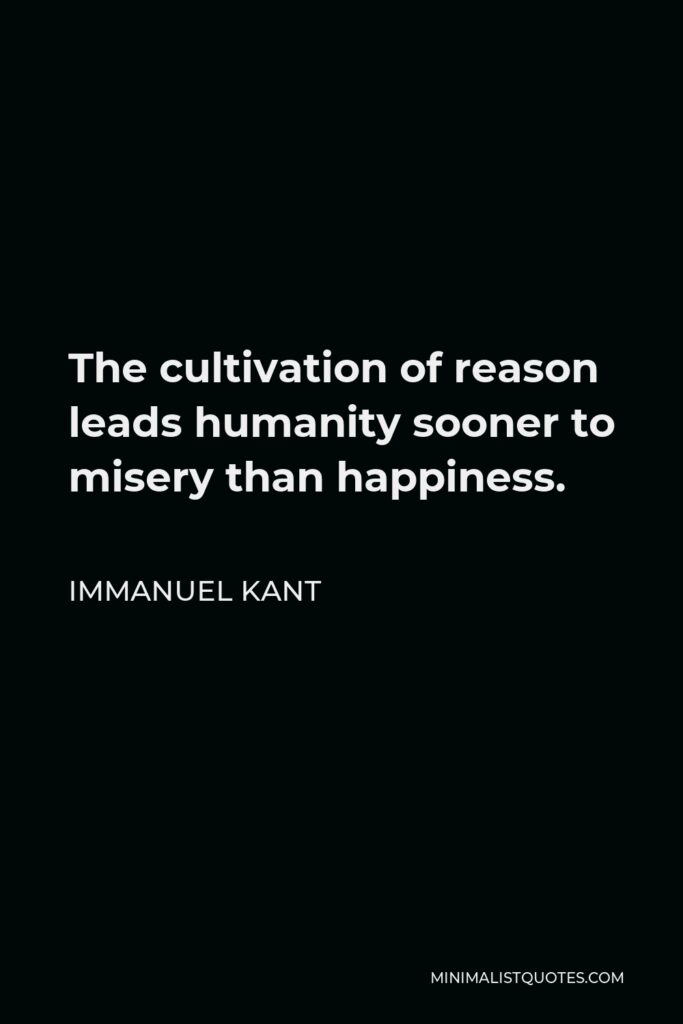

The cultivation of reason leads humanity sooner to misery than happiness.
IMMANUEL KANT -





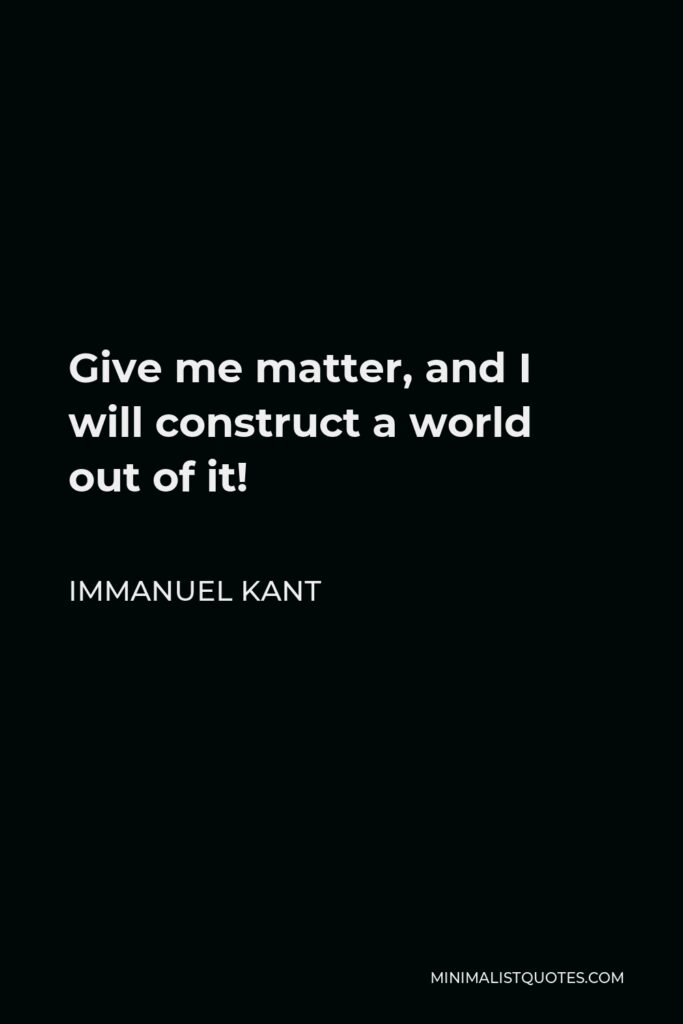

Give me matter, and I will construct a world out of it!
IMMANUEL KANT -







Treat people as an end, and never as a means to an end.
IMMANUEL KANT -





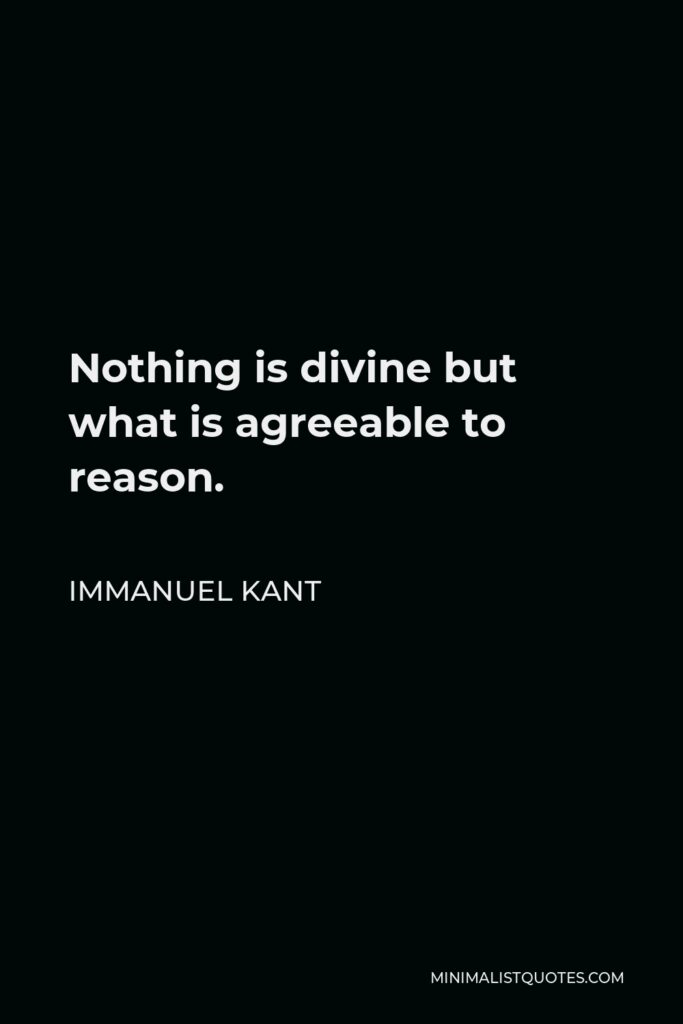

Nothing is divine but what is agreeable to reason.
IMMANUEL KANT -





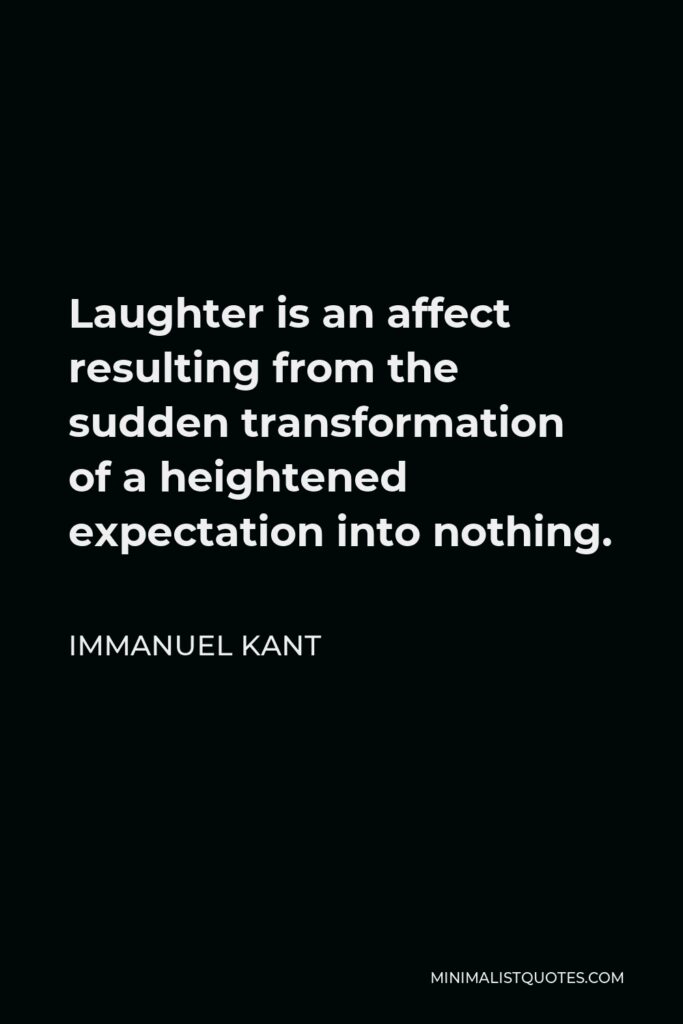

Laughter is an affect resulting from the sudden transformation of a heightened expectation into nothing.
IMMANUEL KANT
